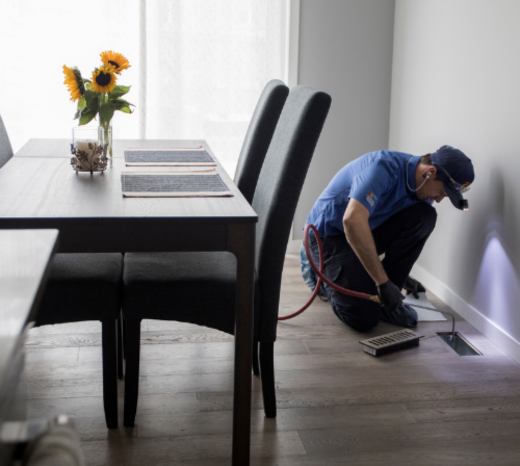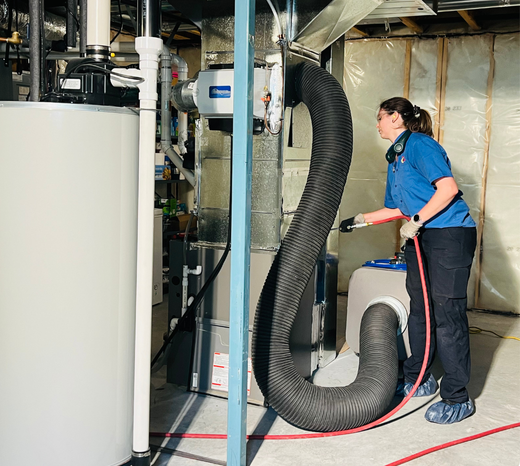Loud pops from your ductwork can be alarming, especially while you’re relaxing, reading, or sleeping. Though it’s not just pops—ducts can make...
Loud pops from your ductwork can be alarming, especially while you’re relaxing, reading, or sleeping. Though it’s not just pops—ducts can make all sorts of sounds for a variety of reasons. Whistles, rattles, and bangs can make you feel like you’re living in a haunted house.
While that may not be the case, these sounds often indicate an underlying issue in your HVAC system. Fortunately, in some cases, it’s just a sign that something has come loose or that there was a misstep during installation. Either way, nobody wants these unnerving sounds disturbing their daily life.
Any time there is a problem with your ductwork, it’s important to address it with the help of your local HVAC service professionals. When it comes to annoying sounds, there are a few things you can do to reduce or even eliminate the noise.
Sounds Coming From Your Ducts
Pops & Bangs
Pops and bangs are the most common sounds coming from your ducts. If your ducts are making noises other than these, you may actually be living in a haunted house! We kid, of course.
These sounds coming from your ductwork are due to expansion and contraction in the walls of the ducts. Most ducts are made from steel or aluminum. Like any material, these metals expand and contract with temperature changes.
As air ducts heat up and cool down, the walls flex in and out of their regular position, which leads to oil canning.
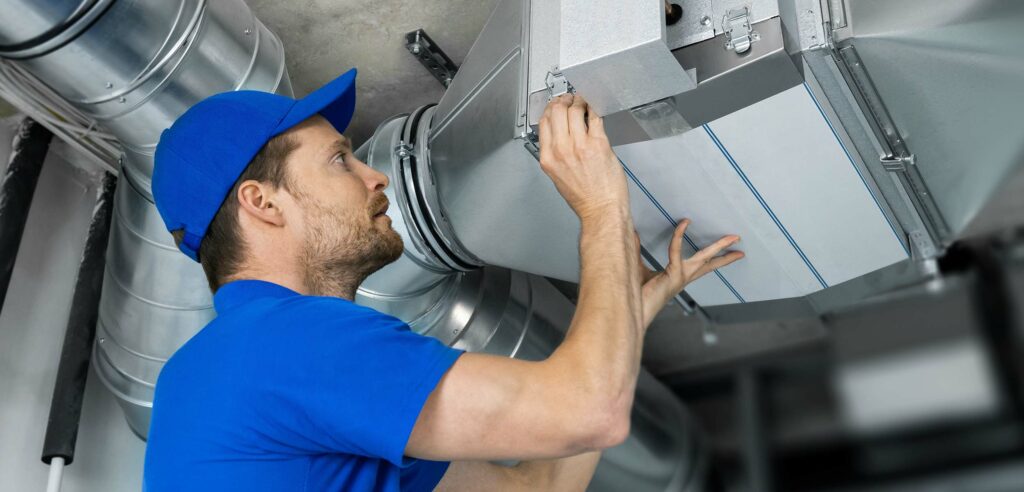
Whistling
You may also hear faint whistling throughout your house, which can be a sign of excessive airflow. In an operating air duct, the air pressure inside the duct is higher than the air pressure outside. Air finds its way out through small gaps in the joints of your ductwork, which can cause a whistling sound.
Creaking
A creaking sound is likely caused by ducts expanding near wood framing. If possible, this can be fixed with a slight repositioning of your ductwork.
Sounds Not Coming From Your Ducts
Ductwork is an effective sound conduit, reverberating various sounds throughout your house. So, some of the sounds you hear coming from your ducts may not indicate a problem with your ductwork but rather other equipment making noise.
Here are some sounds that may indicate other materials are moving around.
Clanks & Rattles
You might hear clanking and rattling inside your house while your furnace is running. These sounds can indicate something is loose or even broken in your furnace’s blower or motor. These noises are irritating and can echo loudly through your ducts. In this case, it’s best to contact a professional technician to diagnose the problem.
Low Booms
Similar to the sound you might hear when igniting your barbecue. This sound is your furnace trying to ignite. Carbon builds up on the ignitor, causing the ignition to make multiple attempts to fire up. Gas builds up, and when the furnace finally ignites, it burns off in a larger-than-normal flash.
Keeping your furnace ignitor system in good standing is essential for efficiency and safety. A professional annual furnace tune-up will help identify if your ignitor needs some maintenance.
Clicking
If your furnace has been off for some time, you may hear clicking when you first turn it on. This is normal for the first few moments after your furnace kicks in. But if the clicking continues for an extended period, it could mean there’s a problem with your furnace’s ignition system.
What Does it Mean When Ducts Pop?
As your furnace turns on and off, hot air causes expansion and contraction in the metal ductwork. When air pumps through a duct, it also creates a pressure difference between the return air and supply air channels. When this happens, it causes flexing in duct walls, which begin to pop in and out of their normal position.
This flexing action is called “oil canning.” The pops are loud and amplified by the metal in the ductwork. And these sounds can be disruptive at all hours of the day or night.
How to Quiet Noisy Ducts
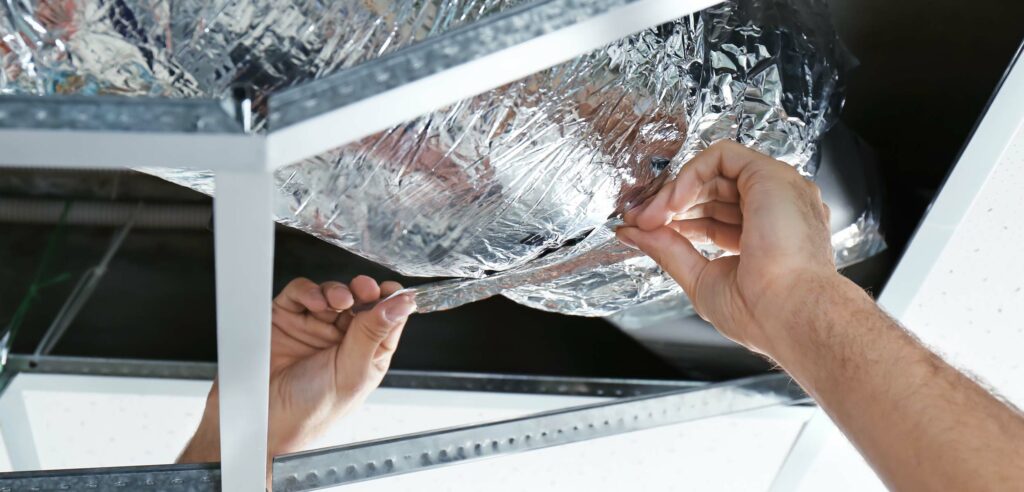
Seal Joints and Leaks
Leaking joints in your ductwork can be the root cause of whistling sounds coming from your ducts. A visual inspection of your ducts may reveal more leaky spots than you might have thought.
You can seal straight-forward duct joints and pinholes with HVAC tape. For more intricate joints and intersections, you may want to try using a water-based duct sealant. These simple repairs can stop that whistling sound and help with your HVAC system's efficiency.
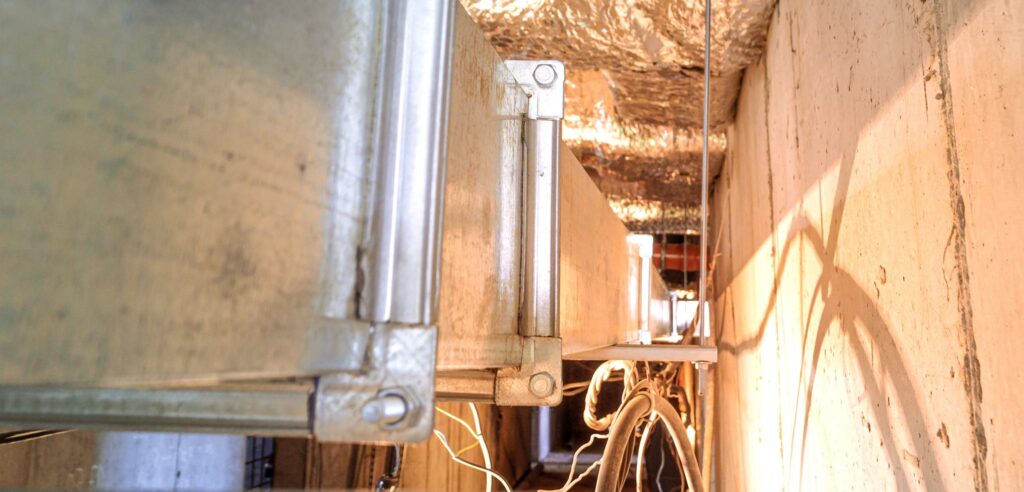
Check Your Vent Dampers
Closed vent dampers can increase the air pressure in your vents and add to the noise. Vent dampers are devices that restrict heat loss once a furnace stops actively heating. Try opening and closing your vent dampers to see if there is any difference.
Most dampers are found close to the base of your furnace at the trunk of your ductwork.
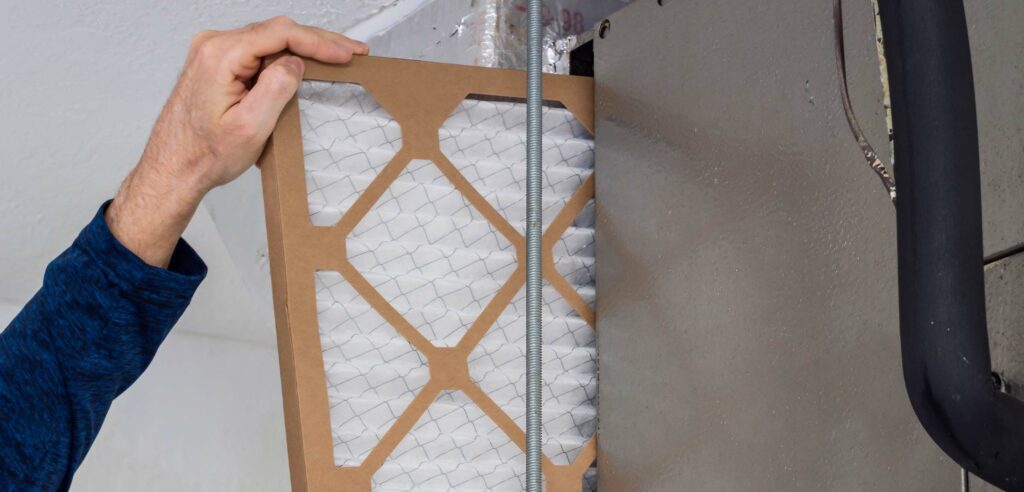
Change Your Air Filter
A dirty or clogged air filter can restrict airflow in your HVAC system. The increased pressure causes the air to escape through any weak points, which can lead to whistling sounds.
We recommend you change your furnace air filter every 3 months. This helps reduce whistling noises, improves system efficiency, and improves your indoor air quality.
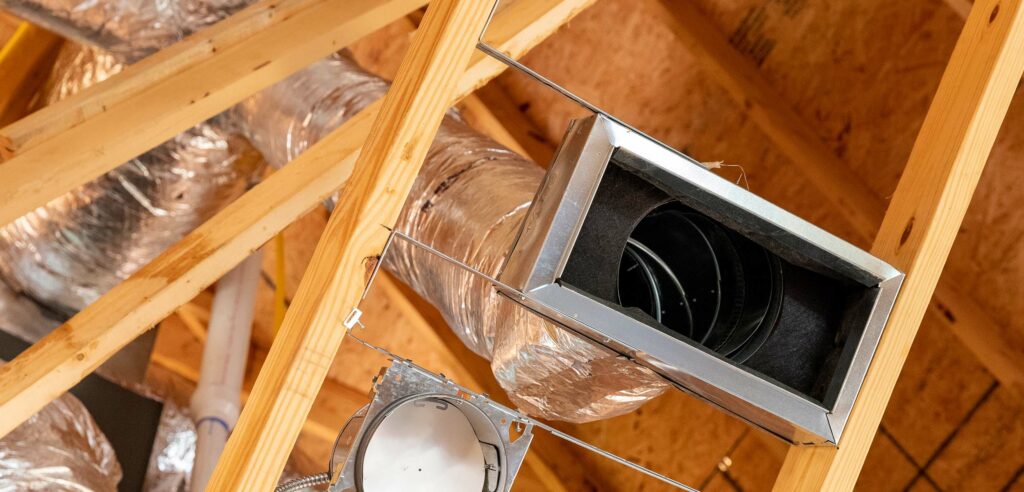
Insulate Your Ducts
Insulating your ductwork will help dampen sounds echoing throughout your home. The insulation will also help retain heat, reducing the fluctuation between hot and cold ductwork. A more constant temperature will lead to fewer pops due to oil canning.
During an installation, ductwork insulation is sometimes a forgotten piece of the puzzle. Sometimes the ducts are positioned in a way that makes them difficult to insulate. Consult an HVAC specialist for advice on insulating ducts in hard-to-reach places.
Additionally, inadequate insulation can strain your heating and cooling systems. Poorly insulated ductwork will hinder your HVAC system from running efficiently, leading to higher energy bills.
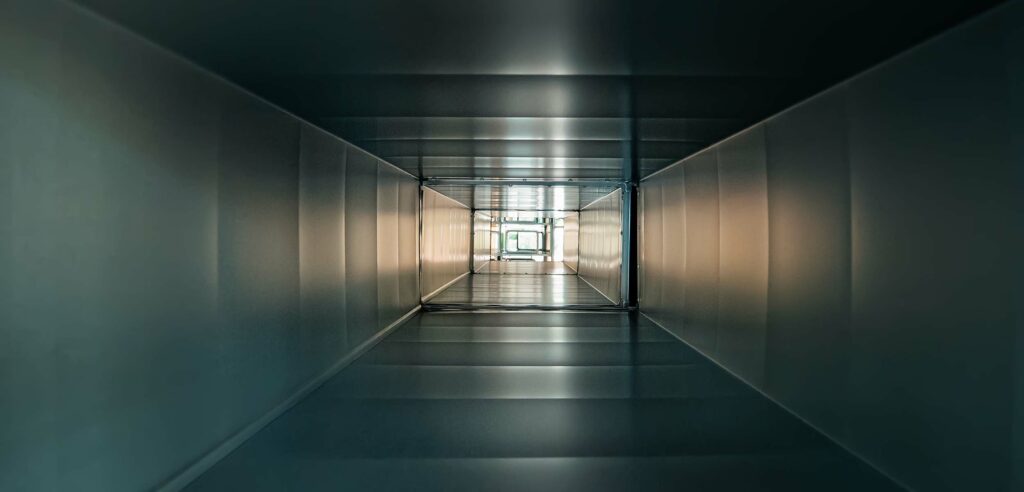
Get Your Ducts Cleaned
Any strain on your HVAC system can lead to unwanted noises ricocheting through your ductwork. Having your ducts cleaned annually will ensure that there is no buildup of dust or debris in your ducts, causing undue stress on your system.
Every duct cleaning is also a chance for your HVAC technician to examine your ducts for cracks, holes, and gaps. These openings can be repaired to improve efficiency and limit those pops and bangs.
Keep the Pops & Bangs at Bay
Old ductwork and airways that require maintenance will likely pop and whistle as air pressure and temperatures vary in your HVAC system. Chances are that once the popping starts, it won’t go away until some maintenance is done. And certain sounds could indicate problems with your furnace itself.
Don’t wait until small annoying sounds turn into big, alarming noises. Book a tune-up with your HVAC pros at Action Furnace. Trusted in the community for over 40 years, we run extensive tests to ensure your furnace or air conditioner runs smoothly when needed.
Professional installation and repairs on your home’s ducts are always the first lines of defence against irritating pops and bangs later on. Annual maintenance gives you peace of mind, keeping you informed of potential problems and extending the life of your HVAC system.

